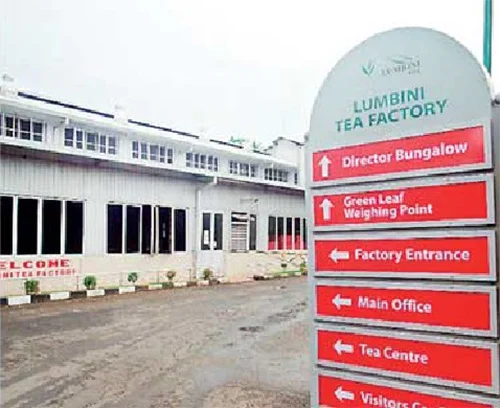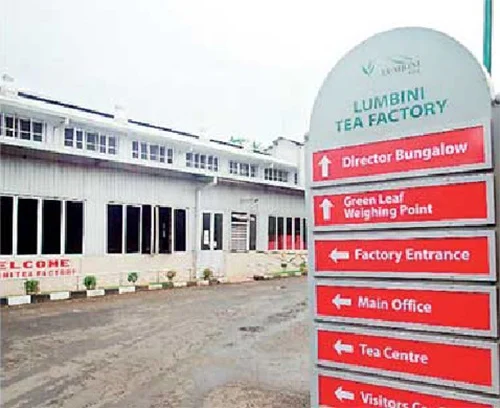Lumbini Tea Valley Ceylon Pvt. Ltd., having won over 152 international awards since 2012 and regarded as one of the most awarded tea brands in the world, on Sunday (10), strengthened its sustainability leadership by signing a landmark Memorandum of Understanding (MoU) with Solidaridad Network Asia and its Sri Lankan partner Nucleus Foundation
In 2024, Lumbini Tea Valley became the world’s first to achieve Regenagri group certification, marking a pioneering milestone in regenerative agriculture for the global tea sector. Building on this achievement, and with an unwavering commitment to sustainability, the company will now, with the support of Solidaridad, expand its efforts to include a comprehensive carbon insetting programme, adoption of advanced regenerative farming practices, development of robust chain of custody systems, introduction of innovative agri-tech for soil, water and biodiversity monitoring, and targeted market promotion of Regenagri-certified teas – reinforcing its position as a leader in climate-smart agriculture.
The partnership will continue to align Lumbini’s operations with the Regenagri standard; the most widely adopted regenerative agriculture certification globally.
Regenagri CiC is equally owned by farmers, businesses, and civil society, with over 2.2 million hectares under certification in 2024 and a further three million hectares in the process for 2025, all eligible for carbon sequestration claims. The standard not only meets prevailing sustainability requirements but also prepares producers for emerging global regulations such as the EU Corporate Sustainability Due Diligence Directive (CSDDD) and the EU Deforestation Regulation (EUDR).
Under the MoU, the parties will implement joint programmes across Lumbini’s tea and agroforestry operations.

Lumbini Tea Plantation, Deniyaya
The focus will be on:
• Soil fertility enhancement through composting, cover cropping, and reduced tillage.
• Water resource management via rainwater harvesting and mulching.
• Establishing biodiversity corridors and ecosystem restoration.
• Promoting social inclusivity through gender-responsive planning and engaging smallholder farmers.
• Market-oriented actions will include developing chain of custody systems, promoting Regenagri-certified products in domestic and international markets, and conducting consumer awareness campaigns to highlight the value of regenerative tea.
The collaboration will see the creation of pilot sites under the Regenagri Carbon Programme, baseline carbon assessments to quantify sequestration, and the generation of Carbon Removal Units (CRUs) under the Regenagri carbon standard.
Lumbini and Solidaridad will explore market opportunities for verified carbon credits, including engagement of smallholder farmers in carbon markets.
Solidaridad through its European offices and in partnership with Regenagri, will advocate for Sri Lankan regenerative tea in international markets, raisingawareness among buyers, consumers, and industry stakeholders of the ecosystem services delivered by Lumbini’s plantations.

Lumbini’s ‘Sinharaja Wiry Tips’ is probably the most awarded tea in the world!
Managing Director, Lumbini Tea Valley Ceylon Pvt. Ltd., Chaminda Jayawardana, said that being the first privately owned tea plantation in the world to achieve Regenagri certification was an important milestone for Lumbini Tea Valley and for Sri Lanka. “This new partnership with Solidaridad and Nucleus Foundation allows us to take the next step – moving beyond certification into carbon insetting, regenerative best practices, and innovative market engagement. It strengthens our environmental stewardship while ensuring our teas remain competitive and desirable in international markets.”
Dr. Shatadru Chattopadhayay, Managing Director, Solidaridad Asia, said that Lumbini Tea Valley has consistently demonstrated leadership in sustainability. Lumbini’s early adoption of Regenagri was a global first for the tea sector, and their commitment to carbon insetting and regenerative agriculture sets a new benchmark for climate-smart tea production.”
Text and pictures
by Priyan de Silva
